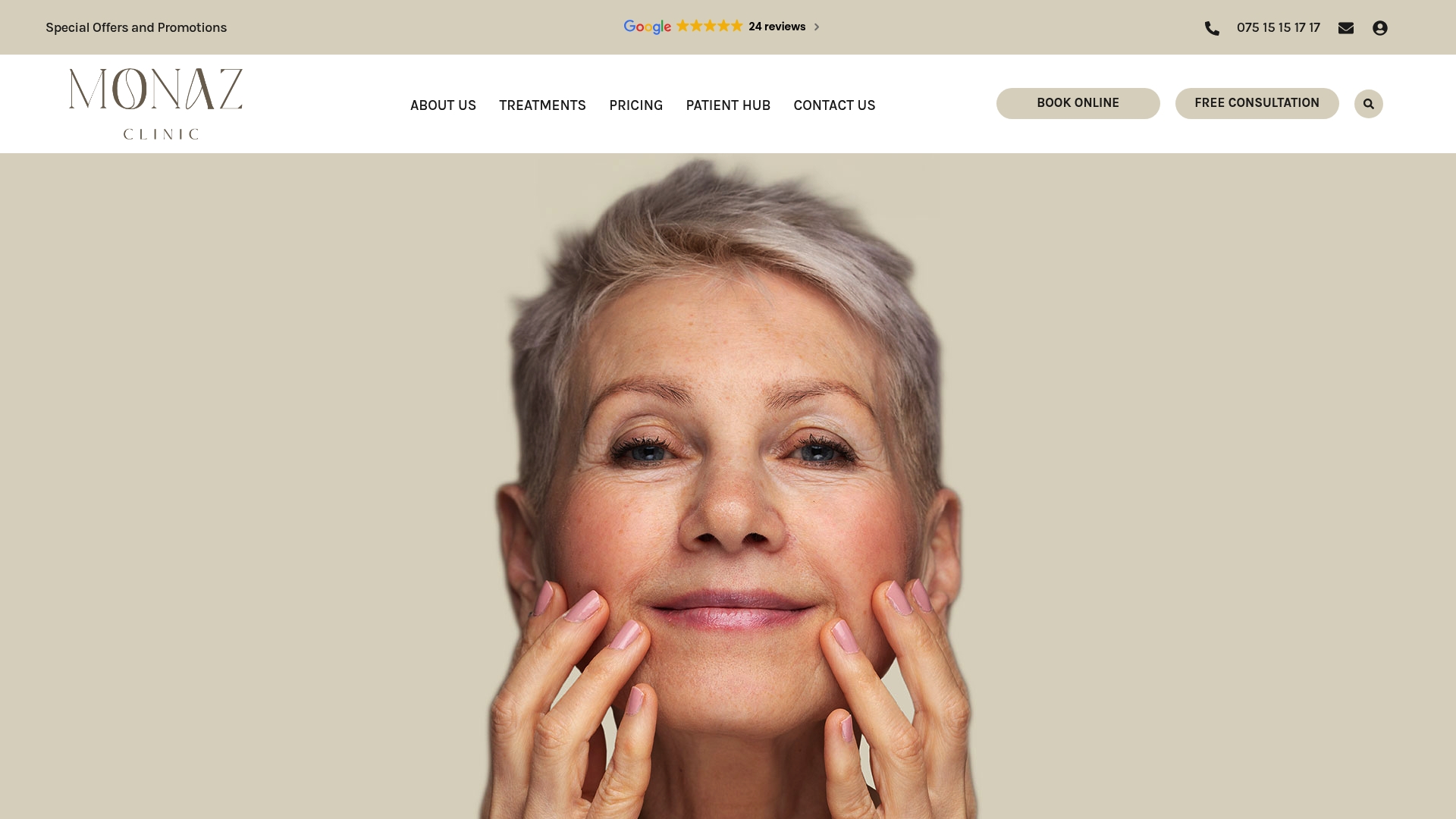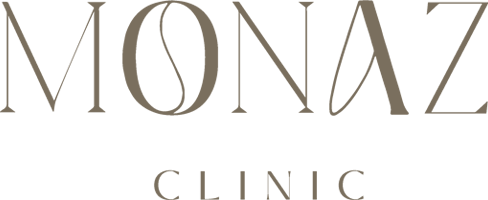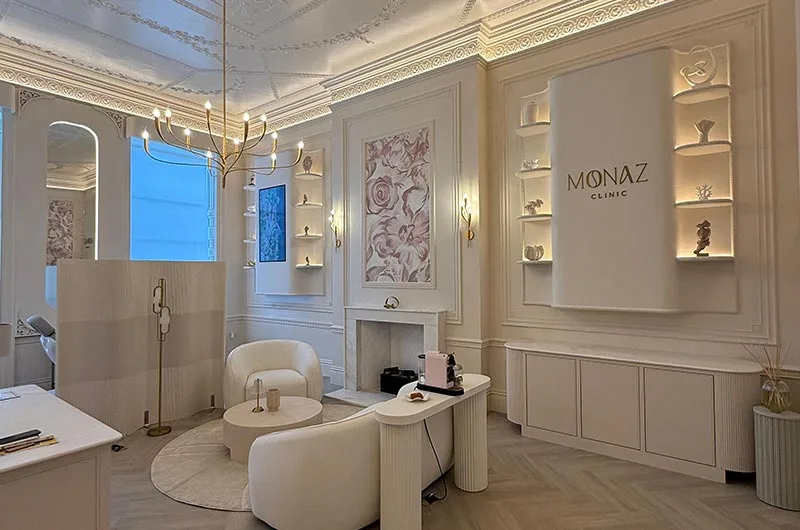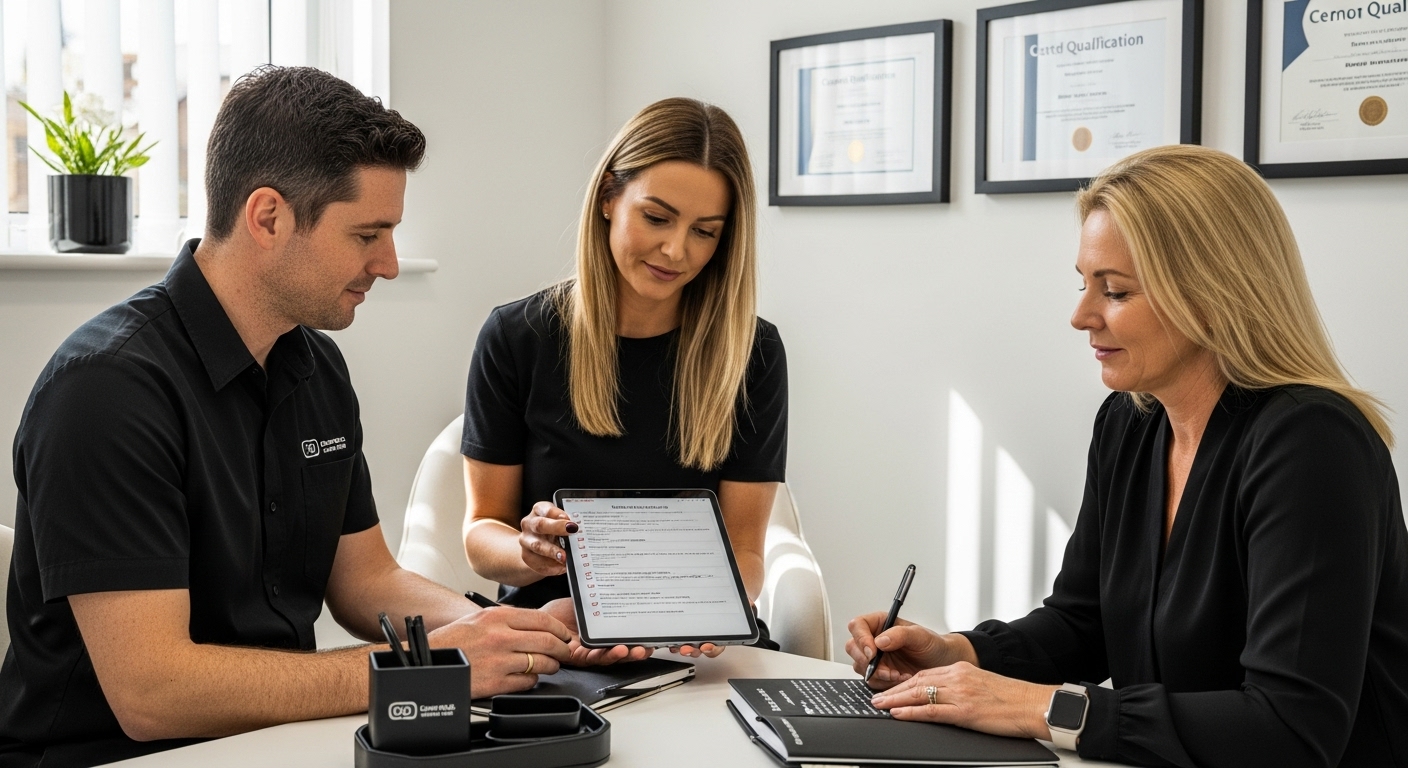Discover 7 essential tips for your aesthetic consultation checklist to ensure a successful experience in London and Harley Street.
Choosing an aesthetic treatment can feel overwhelming with so many options and risks involved. Yet, nearly 90 percent of patients report greater satisfaction when they’ve researched their practitioner and treatment thoroughly. Most people assume picking the right clinic is just about price or a quick recommendation from a friend. In reality, the journey to the best aesthetic results starts long before you ever set foot in the consultation room.
Table of Contents
- Research Your Practitioner
- Understand Your Goals
- Prepare Your Medical History
- Ask About Treatment Options
- Discuss Risks And Side Effects
- Inquire About Recovery Time
- Review Costs And Financing Options
Quick Summary
| Takeaway | Explanation |
|---|---|
| Research practitioners’ credentials thoroughly | Verify medical qualifications, training, and experience to ensure safety and efficacy. |
| Clearly define your aesthetic goals | Articulate specific, realistic objectives for better treatment outcomes during consultations. |
| Prepare a detailed medical history | Provide comprehensive health information to help practitioners tailor safe treatment plans. |
| Discuss treatment options extensively | Engage in dialogue about various procedures to understand risks, benefits, and suitability. |
| Inquire about costs and financing | Obtain a thorough breakdown of expenses and explore flexible payment options to manage your investment. |
1: Research Your Practitioner
Navigating the world of aesthetic treatments requires careful consideration of your chosen practitioner. Your consultation experience and ultimate results depend significantly on selecting a medically qualified professional with the right expertise and credentials.
According to the British Medical Journal, verifying a practitioner’s background is crucial for patient safety and treatment success. When researching potential aesthetic practitioners, focus on the following key areas:
- Professional Qualifications: Confirm medical registration with regulatory bodies
- Specialized Training: Look for specific aesthetic medicine certifications
- Clinical Experience: Review years of practice in aesthetic treatments
Start by checking the practitioner’s registration status with professional bodies like the General Medical Council (GMC) or British Association of Aesthetic Plastic Surgeons (BAAPS). These organizations maintain detailed records of practitioners’ qualifications and any potential disciplinary actions.
Look beyond basic credentials. A reputable practitioner should have:
- Transparent portfolio of previous work
- Patient testimonials and reviews
- Clear communication about potential risks and expected outcomes
During your initial research, prioritize practitioners who demonstrate a commitment to patient safety, continuous professional development, and a natural, personalized approach to aesthetic treatments. At Monaz Clinic, our practitioners embody these principles, ensuring every consultation is conducted with the highest standards of medical expertise and patient care.
2: Understand Your Goals
Successful aesthetic treatments begin with a crystal clear understanding of your personal objectives. Identifying and articulating your precise aesthetic goals is fundamental to achieving transformative yet natural results.
Research from the Journal of Cutaneous and Aesthetic Surgery highlights the critical importance of establishing patient motivations and expectations during initial consultations. This means moving beyond vague desires and developing specific, realistic treatment objectives.
Before your consultation, take time for honest self-reflection. Consider the following aspects:
- Physical Concerns: Specific areas of aesthetic dissatisfaction
- Emotional Expectations: How you hope treatment will impact your confidence
- Lifestyle Considerations: Treatment compatibility with your daily routine
Effective goal setting involves understanding the nuanced differences between want and achievable improvement. A skilled practitioner will help you distinguish between unrealistic expectations and meaningful aesthetic enhancements that complement your natural features.
When discussing your goals, prepare to be transparent about:
- Previous aesthetic treatments
- Specific concerns about your appearance
- Personal comfort levels with potential procedures
Your consultation should feel like a collaborative dialogue. A reputable aesthetic professional will listen carefully, offer professional insights, and work with you to develop a personalized treatment strategy that aligns with your unique vision. The objective is not radical transformation but subtle, refined improvements that enhance your natural beauty and boost your self-confidence.
3: Prepare Your Medical History
Your medical history serves as a critical roadmap for safe and effective aesthetic treatments. A comprehensive medical background helps practitioners understand potential risks, design personalized treatment plans, and ensure your overall safety during any aesthetic procedure.
Before your consultation, gather detailed documentation about your health. This proactive approach demonstrates your commitment to transparency and allows for a more thorough assessment of your aesthetic goals.
Key medical information you should compile includes:
- Current and Past Medical Conditions: Comprehensive overview of diagnosed health issues
- Medication History: Prescription drugs, supplements, and over-the-counter medications
- Allergies and Sensitivities: Specific reactions to medications or substances
Prepare to discuss specific details that might impact aesthetic treatments, such as:
- Chronic health conditions
- Recent surgeries or medical interventions
- Skin disorders or healing complications
- Hormonal imbalances
- Autoimmune disorders
Transparency is paramount. Some medical conditions that might seem unrelated could significantly influence treatment outcomes or potential risks. Medications like blood thinners, immunosuppressants, or hormonal treatments can affect healing processes and treatment effectiveness.
Consider bringing physical copies of recent medical records, including:
- Recent blood work
- Medication lists
- Specialist consultation summaries
A professional aesthetic practitioner will conduct a thorough review of your medical history, asking detailed questions to ensure the safest possible approach to your aesthetic goals. Your openness and preparedness will facilitate a more productive and personalized consultation experience.
4: Ask About Treatment Options
A comprehensive aesthetic consultation requires an in-depth exploration of available treatment options. Understanding the breadth and nuance of potential procedures empowers you to make informed decisions aligned with your aesthetic goals.
According to Plastic and Reconstructive Surgery Global Open, patients should engage in a shared decision-making process that thoroughly examines different treatment modalities, their associated risks, and potential outcomes.
During your consultation, prepare to discuss the following key treatment considerations:
- Non-invasive Treatments: Minimally interventional options
- Surgical Procedures: More comprehensive aesthetic interventions
- Combination Approaches: Integrated treatment strategies
Critical questions to ask your practitioner include:
- What are the specific benefits of each recommended treatment?
- What is the expected recovery time?
- Are there potential side effects or complications?
- How long will the results typically last?
Realistic expectations are fundamental. A skilled practitioner will provide transparent information about what each procedure can and cannot achieve. They should offer clear comparisons between different treatment options, helping you understand the nuanced differences in approach, intensity, and potential results.
Consider factors beyond the immediate aesthetic outcome. Evaluate:
- Long-term maintenance requirements
- Financial investment
- Impact on your daily lifestyle
- Potential psychological benefits
Your consultation should feel like a collaborative dialogue where you can openly discuss your concerns, preferences, and vision. A reputable aesthetic professional will listen carefully, offer professional insights, and help you navigate the complex landscape of available treatments with expertise and compassion.
5: Discuss Risks and Side Effects
A comprehensive understanding of potential treatment risks is fundamental to making an informed aesthetic decision. Transparency about possible complications ensures you can approach your chosen procedure with realistic expectations and proper preparation.
According to Facial Plastic Surgery Clinics of North America, informed consent requires a detailed discussion of potential adverse effects specific to each treatment modality.
General categories of potential risks include:
- Physiological Reactions: Potential bodily responses to treatment
- Aesthetic Outcomes: Variations from expected results
- Healing Complications: Potential interruptions in recovery process
Critical questions to explore during your consultation:
- What are the most common side effects?
- How likely are serious complications?
- What is the protocol if unexpected results occur?
- What specific aftercare will minimize risks?
Individual medical history plays a significant role in determining potential risks. Factors such as age, skin type, underlying health conditions, and previous aesthetic treatments can substantially influence treatment outcomes and potential complications.
Professional practitioners will provide:
- Detailed written information about potential risks
- Personalized risk assessment based on your medical profile
- Clear communication about recovery expectations
Remember that minimal risk does not mean no risk. A responsible aesthetic professional will ensure you understand every potential scenario, empowering you to make a confident, well-informed decision about your aesthetic journey.
6: Inquire About Recovery Time
Understanding recovery time is crucial for planning your aesthetic treatment and managing professional and personal commitments. Recovery expectations vary dramatically across different procedures, making comprehensive discussion essential during your initial consultation.
According to medical research, recovery timelines are highly individualized and depend on multiple factors beyond the specific treatment.
Key recovery considerations include:
- Immediate Post-Treatment Period: Initial healing and visible changes
- Short-Term Recovery: Return to normal daily activities
- Long-Term Healing: Complete resolution of treatment effects
Critical questions to explore with your practitioner:
- What is the expected downtime for this specific procedure?
- When can I return to work and normal activities?
- Are there specific restrictions during recovery?
- How will my appearance change during the healing process?
Professional guidance is paramount. Each aesthetic treatment presents unique recovery dynamics. Minimally invasive procedures might require only days of recovery, while more complex interventions could necessitate weeks of careful aftercare.
Factors influencing recovery include:
- Individual healing capabilities
- Overall health status
- Adherence to post-treatment instructions
- Age and skin condition
A transparent discussion about recovery helps you prepare mentally and practically. This includes planning for potential time off work, arranging support during initial healing, and understanding how to optimize your body’s natural recovery processes.
7: Review Costs and Financing Options
Navigating the financial aspects of aesthetic treatments requires careful planning and transparent communication. Understanding the full scope of treatment costs is crucial for making an informed decision that aligns with your aesthetic goals and budgetary constraints.
According to the University of Michigan’s Facial Cosmetic Surgery department, cosmetic procedures are typically not covered by standard insurance policies, making comprehensive cost discussion essential during your consultation.
Key financial considerations include:
- Total Procedure Cost: Complete breakdown of all associated expenses
- Additional Treatment Fees: Potential follow-up or maintenance costs
- Long-Term Investment: Considering value beyond initial treatment
Critical questions to explore during your consultation:
- What is the exact cost of the recommended treatment?
- Are there package deals or comprehensive pricing options?
- What financing plans are available?
- Are there potential additional expenses not included in the initial quote?
Transparent pricing is a hallmark of a reputable aesthetic practice. A professional consultation should provide a detailed, itemized breakdown of all costs, including:
- Surgeon’s professional fees
- Facility charges
- Anesthesia or sedation costs
- Post-procedure care and follow-up appointments
Many clinics offer flexible financing options to help patients manage the investment in their aesthetic journey. These might include:
- Monthly payment plans
- Medical credit services
- Promotional financing with zero or low interest
Remember that the cheapest option is not always the best. Quality and safety should be your primary considerations, with cost being an important but secondary factor in your decision-making process.
Below is a comprehensive table summarizing the key steps and insights from the article, designed to serve as a practical reference for anyone preparing for an aesthetic consultation.
| Step / Topic | What to Do | Key Benefits & Outcomes |
|---|---|---|
| Research Your Practitioner | Verify credentials, training, and experience | Ensures treatment safety, higher satisfaction, and better results |
| Understand Your Goals | Define specific, realistic aesthetic objectives | Supports personalized treatment plans and aligns expectations with achievable outcomes |
| Prepare Your Medical History | Compile medications, allergies, and existing health conditions | Enables tailored procedures, reduces risk, and maximizes treatment safety |
| Ask About Treatment Options | Discuss all available procedures and their pros/cons | Promotes informed decisions, manages expectations, and clarifies potential results |
| Discuss Risks and Side Effects | Learn about possible complications and aftercare requirements | Ensures informed consent, prepares for possible outcomes, and reduces anxiety over unexpected effects |
| Inquire About Recovery Time | Understand downtime and activity restrictions | Helps plan work and personal life, improves recovery experience, and sets clear post-procedure goals |
| Review Costs and Financing Options | Request a detailed cost breakdown and explore payment plans | Prevents unexpected expenses, allows budget planning, and removes financial stress surrounding treatment |
Step Into Your Best Consultation Experience With Monaz Clinic
Are you careful about choosing a practitioner, need guidance on setting realistic goals, or want clear answers about risks, costs, and recovery times? Our latest post on the Tips page identifies how confusing and overwhelming the journey toward facial aesthetics can feel. At Monaz Clinic, we transform these concerns into a supportive, individualized process for every woman, ensuring your priorities come first.

Ready to turn essential consultation tips into the natural, confidence-boosting results you deserve? Connect with us at Monaz Clinic for a complimentary, pressure-free consultation led by an expert, medically qualified practitioner. Discover how our one-on-one approach, decades of medical experience, and commitment to safety make all the difference. Take the first step and let your aesthetic journey begin today—explore more tips for your consultation or schedule your personalized visit now.
Frequently Asked Questions
How do I choose the right practitioner for aesthetic treatments?
Choosing the right practitioner involves researching their professional qualifications, specialized training, and clinical experience. Verify their registration with bodies like the General Medical Council (GMC) and look for reviews and a portfolio of their previous work.
What should I consider when setting my aesthetic goals?
When setting your aesthetic goals, reflect on your physical concerns, emotional expectations, and lifestyle considerations. Be specific about what you want to achieve and how treatment may impact your confidence and daily routine.
What medical information should I prepare before my consultation?
Before your consultation, compile your current and past medical conditions, medication history, and any allergies. This information will help the practitioner assess potential risks and tailor a personalized treatment plan.
What should I ask my aesthetic practitioner about treatment options?
During your consultation, ask about the benefits and risks of each treatment option, expected recovery times, and potential side effects. Understanding these factors will help you make an informed decision about your aesthetic goals.





